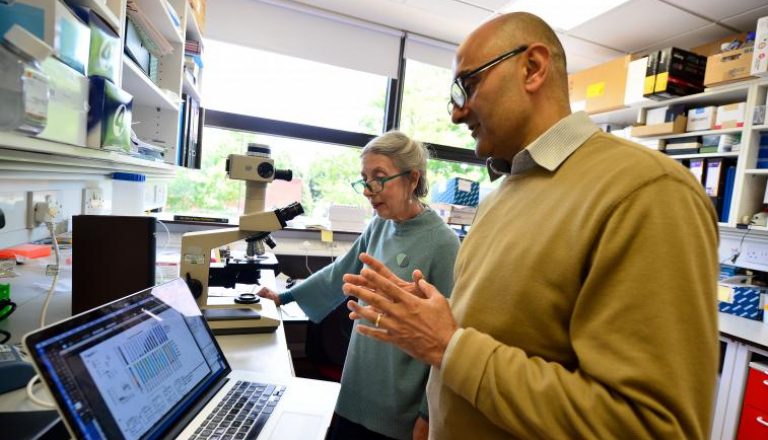Children with Down’s syndrome have around a one in 50 chance of developing acute myeloid leukaemia (AML), compared to a one in 7,000 chance for children without Down’s syndrome. While some of the genetic causes have been established before, this is the first study to identify the wide range of genetic mutations and how they interact during leukaemia development. The study was published in the journal Cancer Cell. The findings were made by Children with Cancer UK and Blood Cancer UK-funded researchers at the University of Oxford, working with researchers from Hannover Medical School and Martin-Luther-University Halle-Wittenberg. The need to make treatments kinder A Children with Cancer UK spokesperson commented:
This research is an important step in helping us to understand why some children with Down’s syndrome are far more likely to develop acute myeloid leukaemia than those without. This will help with very early diagnosis and possibly open up ways of preventing the leukaemia developing.
Alongside improved testing and monitoring for signs of the condition, we hope these encouraging findings will lead to the development of kinder, more effective treatments to reduce side effects and give children with Down’s syndrome who develop signs of myeloid leukaemia the best possible chance of survival. It is vital that we continue to fund pioneering research to improve early diagnosis and the quality of care for young cancer patients, and keep more families together.Dr Alasdair Rankin, Director of Research, Policy and Support at Blood Cancer UK, said:
The majority of children with Down’s syndrome will not develop leukaemia, however the fact that they are at higher risk than other children can be extremely worrying for their families. Research has made great strides in improving monitoring and treatment for these children in recent years. Survival can still come at a cost, with the side-effects of gruelling treatment on young bodies having a long-term impact on their health. This is an exciting development which we hope could lead to more effective and much gentler treatments for these children.Genetic changes in a child’s blood cells “We already knew that 30% of babies born with Down’s syndrome have acquired a change in a gene called GATA1 in their blood cells,” said study author Professor Paresh Vyas, from the MRC Weatherall Institute of Molecular Medicine at the University of Oxford. “The abnormality in the GATA1 gene can be detected by a simple blood test at birth. Babies with an altered GATA1 gene have a predisposition to develop leukaemia, and we often refer to this as ‘myeloid pre-leukaemia’.” Of the 30% of children with Down’s syndrome who are found to have ‘myeloid pre- leukaemia’, only 10% of those will go on to develop full-blown leukaemia. Until now, it was not understood why only some children with the GATA1 mutation were progressing to full leukaemia, while others were not. Professor Vyas said: “We carefully characterised the mutations in genes required for leukaemia to develop and found that additional genetic changes are required in the altered GATA1 blood cells, and these additional changes transform the pre-leukaemic blood cells into leukaemia blood cells.” A blood test at birth for those at risk In total, 43 different altered genes were found. While children with Down’s syndrome are currently tested at birth for the GATA1 mutation, it may now become possible in the future to test for the additional mutations too. “This would mean that we could identify the 10% of children who will develop leukaemia more quickly and easily, and importantly reassure 90% of families whose children will not,” said Professor Vyas. “It may also mean we can develop and test new treatments specifically targeting the genetic changes we now know are required by the leukaemia – and so develop more targeted treatments with less side effects.” More effective treatments Current treatments for Down’s syndrome children with leukaemia are already highly successful, and off the back of this research, another possible drug treatment has come to light. The drug Ruxolitinib, which is currently used to treat some blood conditions, could potentially be used to treat some of the specific genetic mutations found in the study. Clinical trials of the drug are a possibility for the future.
